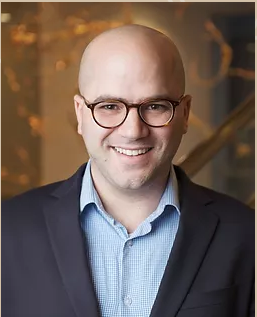Haitham Amal is one of the world’s rising scientific stars, and his work is giving optimism to families impacted by autism. His story is a profound example of the impact philanthropy can make in early-stage scientific research.
The numbers surrounding autism are staggering: In 1960, one in 2,500 young children was diagnosed as being on the autism spectrum. Today? In the U.S., that ratio has risen to one in 30, with cases increasing more than 40 percent just since 2017.
Despite those disquieting statistics, lately there’s been some sunny news. Thanks in part to the support of free-enterprise-generated philanthropy, scientists are making exciting progress in understanding the disorder — potentially easing the burden of an autism diagnosis on individuals, families and communities.
At the forefront of what’s happening is Haitham Amal, a professor at Hebrew University of Jerusalem and a recipient of a 2022 Krill Prize, an honor awarded by the Wolf Foundation, whose prestige in scientific circles is second only to the Nobel Foundation. Amal, who’ll make a presentation about his research in Philadelphia on July 27, has led pioneering work in identifying biomarkers for autism, which could result in more effective diagnosis of the condition and, in time, treatments for managing it. “I’m trying to be down to earth,” he says of the breakthrough research. “But I’m optimistic.”
Amal first got interested in studying autism as a post-doc at MIT in 2015, where he was the recipient of an important fellowship supported by the Satell Family Foundation. That early research set the stage for the work he’s done as a professor at Hebrew University — also supported by funding from the Satell Family Foundation — that’s allowed him to publish 11 papers in leading scientific journals, earn three patents, and gain acclaim as one of the scientific world’s rising young stars. (Last year he was named one of the 40 most promising people under age 40 by Israeli magazine The Marker.)
Amal’s trailblazing work is focused on several different areas. First, he and his team of researchers have developed a blood and breath test that would profoundly revolutionize the diagnosis of autism. Currently, identification of the condition only occurs through clinical observation, a process that can be expensive (costs average from $3,000 to $5,000), time-consuming, and not always definitive. The new test would not only be cheaper and faster, but also produce less subjective results. “We have developed a very novel model using blood and breath,” Amal says. “From the blood we look for specific things that no one has looked for before, and we’re getting very nice results.” Indeed, in testing 60 children ages 2-6, the new protocol has so far been shown to be more than 90 percent accurate. Next steps: broader testing, followed, Amal hopes, by bringing the test to market.
A second area of focus is potentially even more exciting—developing drugs that could one day help manage the symptoms that people who are on the spectrum experience, including difficulty socializing, heightened anxiety, and reduced novelty-seeking. Lab experiments on mice who have mutations associated with autism have been encouraging. “One of the drugs we’re using right now is giving a very full reversal of the autistic behavior,” he says. “When we give this drug, we can see that the mice are more social, less anxious, and more interested in novel objects. These are really amazing findings we’re seeing.” Amal cautions that research on mice doesn’t always translate to people, but if all continues to go well he hopes to begin clinical testing on humans diagnosed with autism within a few years.
A third intriguing aspect of Amal’s work is the link he and his lab have discovered between autism and Alzheimer’s Disease; they published a paper last year in the journal Translational Psychiatry showing shared mechanisms between the two. His team has now begun lab-testing a drug that could potentially treat both conditions.
Despite such progress, the ever-escalating number of people dealing with autism remains, Amal says, something of a mystery. Part of it, no doubt, is increased awareness about the condition, which is leading to more widespread diagnosis. But he also believes certain environmental and dietary factors — studies have shown a link between arsenic and autism, for example – are likely increasing the actual number of people with the condition.
Particularly in its earliest stages, scientific research is often a gamble, which can make it tough for researchers to attract government support. That’s why Amal is happy to acknowledge how crucial corporate philanthropy has been in his work. “I’ll give you a simple example,” he says. “Without the support from the Satell Family Foundation, at the very beginning I couldn’t have recruited a post-doc for my lab. Post-docs are very expensive because they’re the most experienced.” Foundation funding not only helped cover that cost, but other research expenses as well.
The benefit, thus far, has made it money well-invested, though Amal hopes it’s just the beginning. “It’s a very big dream,” he says of his work. One that could ultimately make a difference in the lives of millions of children.


